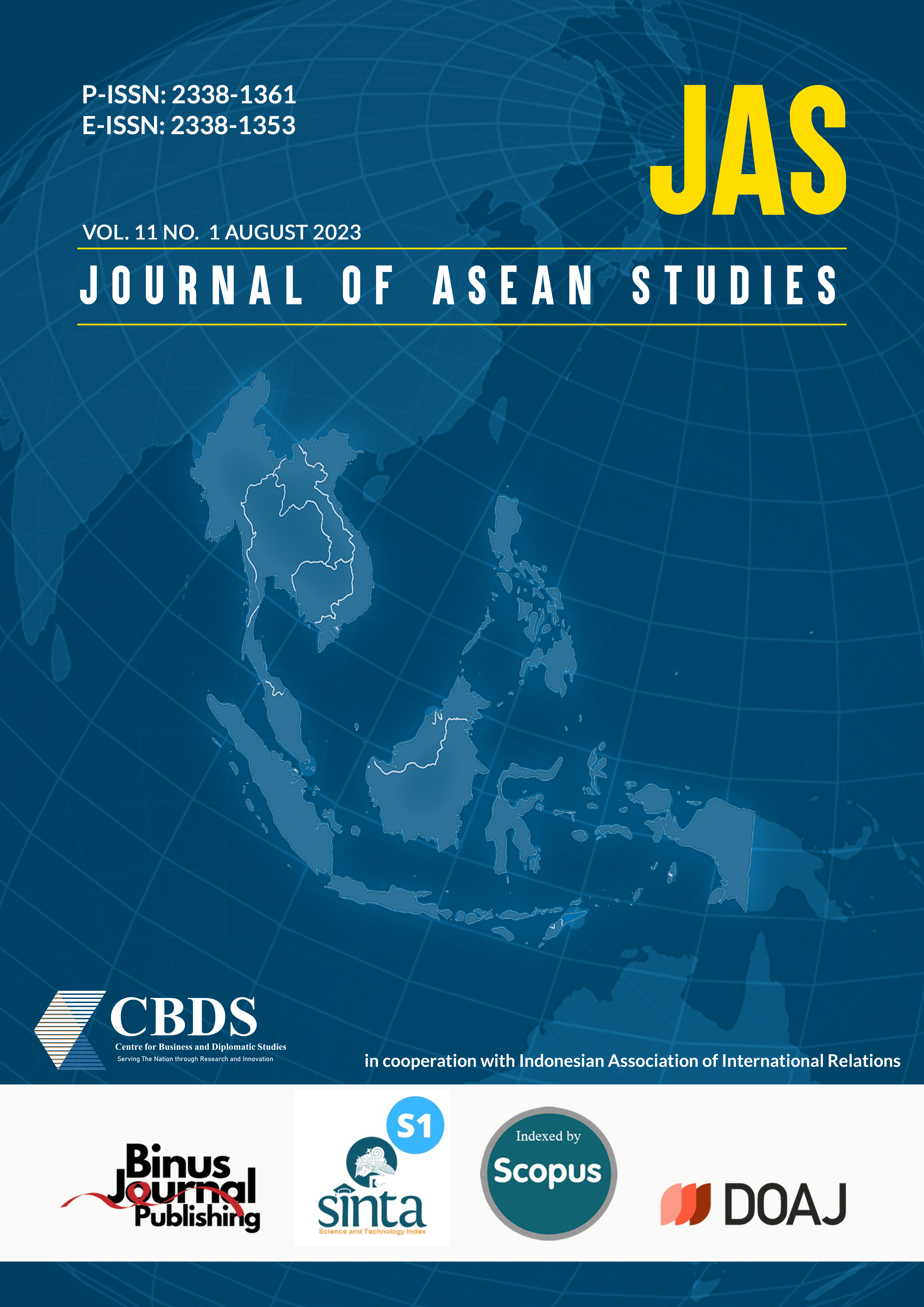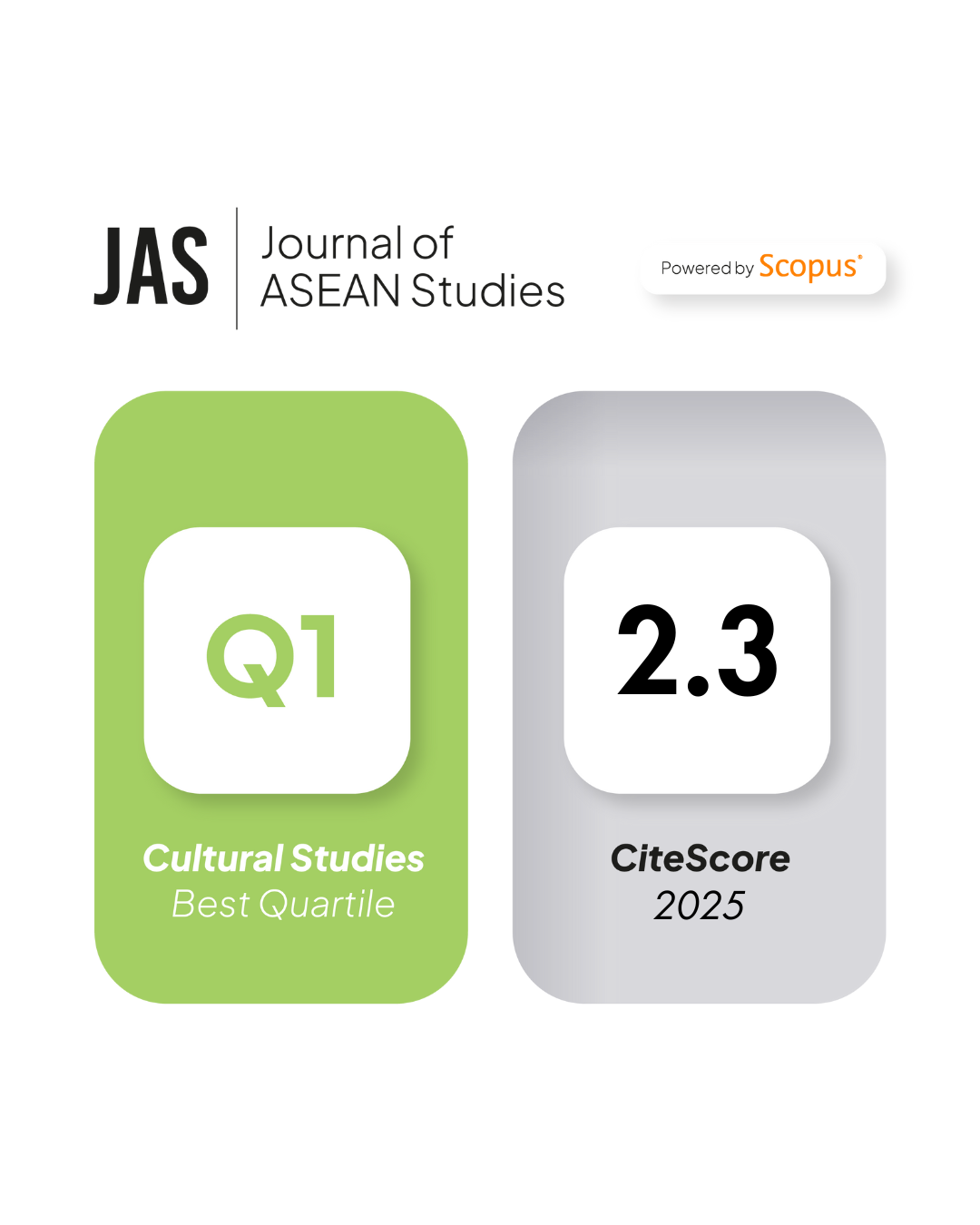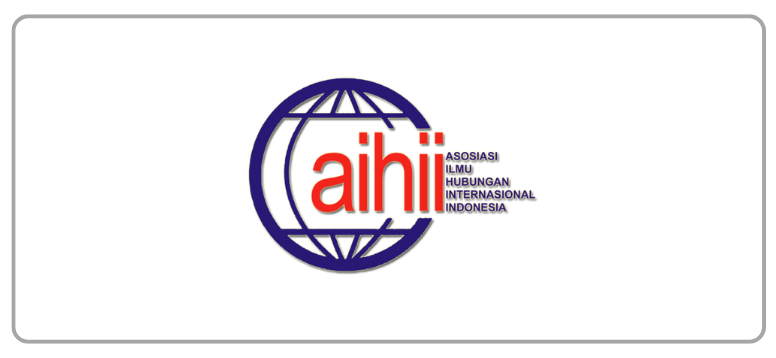Institutional Dynamics of Halal Tourism Development in Indonesia and Malaysia
DOI:
https://doi.org/10.21512/jas.v11i1.9431Keywords:
Halal tourism development, institutional dynamics, Indonesia, MalaysiaAbstract
In the context of Southeast Asia, Muslim-majority nations Indonesia and Malaysia had pioneered the development of halal tourism. Nevertheless, Malaysia has outperformed Indonesia in cultivating its halal tourism industry. The research sought to investigate the political economy factors contributing to this discrepancy. The research posited that the emergence of Islamic identity, the intensification of Islam’s politicization, and the varying degrees of capitalizing on Islamic values are three crucial determinants influencing the relative success of Malaysia’s halal tourism industry compared to Indonesia’s. Firstly, the perception of Islamic identity in Malaysia is less threatening compared to that in Indonesia. Secondly, the politicization of Islam is less pronounced in Malaysia than in Indonesia. To examine these assertions, the research utilized a methodological blend of primary and secondary data, incorporating interviews with policymakers and stakeholders of halal tourism in both countries. In addition to identifying the critical factors shaping the development of halal tourism, the research contributed by offering several recommendations concerning the innovative aspect of halal tourism branding. It was argued that within the growth of halal tourism in a nation, debates surrounding the emergence of Islamic identity in aspects of halal tourism can potentially obstruct the advancement of cultural tourism commodities. Consequently, the research enhances our understanding of the complex interplay between political economy factors and the evolution of halal tourism from an academic perspective.
References
Adinugraha, H. H., Nasution, I. F. A., Faisal, F., Daulay, M., Harahap, I., Wildan, T., ..., & Purwanto, A. (2021). Halal tourism in Indonesia: An Indonesian Council of Ulama National Sharia Board Fatwa Perspective. Journal of Asian Finance, Economics and Business, 8(3), 665–673. https://doi.org/10.13106/jafeb.2021.vol8.no3.0665
Akpur, U. (2020). Critical, reflective, creative thinking and their reflections on academic achievement. Thinking Skills and Creativity, 37. https://doi.org/10.1016/j.tsc.2020.100683
Aminah, S., & Bhakti, B. A. S. (2022). Multiculturalism in Japan halal tourism: Localizing the concept of halal. Journal of Tourism and Cultural Change, 21(3), 273–289. https://doi.org/10.1080/14766825.2022.2106788
Battour, M., Hakimian, F., Ismail, M., & Boğan, E. (2018). The perception of non-Muslim tourists towards halal tourism: Evidence from Turkey and Malaysia. Journal of Islamic Marketing, 9(4), 823–840. https://doi.org/10.1108/JIMA-07-2017-0072
Burnette, J. L., Pollack, J. M., Forsyth, R. B., Hoyt, C. L., Babij, A. D., Thomas, F. N., & Coy, A. E. (2019). A growth mindset intervention: Enhancing students’ entrepreneurial self-efficacy and career development. Entrepreneurship Theory and Practice, 44(5), 878–908. https://doi.org/10.1177/1042258719864293
Carboni, M., Perelli, C., & Sistu, G. (2014). Is Islamic tourism a viable option for Tunisian tourism? Insights from Djerba. Tourism Management Perspectives, 11, 1–9. https://doi.org/10.1016/j.tmp.2014.02.002
Çardak, Ç. S. (2018). Creative and critical reflective thinking (C&CRT) skill during connectivist learning process. Revista del Congrés Internacional de Docència Università ria iInnovació (CIDUI), (4).
El-Gohary, H. (2016). Halal tourism, is it really Halal? Tourism Management Perspectives, 19, 124–130. https://doi.org/10.1016/j.tmp.2015.12.013
Keliat, C., & Sentanu, I. G. E. P. S. (2022). Sustainable halal tourism in the post pandemic era: Opportunity and challenges. Journal of Research on Business and Tourism, 2(1), 69. https://doi.org/10.37535/104002120226
Lent, R. W., Brown, S. D., & Hackett, G. (1994). Toward a unifying social cognitive theory of career and academic interest, choice, and performance. Journal of Vocational Behavior, 45(1), 79–122. https://doi.org/10.1006/jvbe.1994.1027
Makhasi, G. Y. M., & Rahimmadhi, M. T. Y. (2020). Ramai-ramai menolak wisata halal: Kontestasi politik identitas dalam perkembangan wisata halal di Indonesia. Jurnal Sosiologi Reflektif, 14(2), 373. https://doi.org/10.14421/jsr.v14i2.1767
McGrath, R. G., & MacMillan, I. C. (2000). The Entrepreneurial Mindset: Strategies for Continuously Creating Opportunity in an Age of Uncertainty. Harvard Business Press.
Mohsin, A., Ramli, N., & Alkhulayfi, B. A. (2016). Halal tourism: Emerging opportunities. Tourism Management Perspectives, 19(2016), 137–143. https://doi.org/10.1016/j.tmp.2015.12.010
Oktadiana, H., Pearce, P. L., & Chon, K. (2016). Muslim travellers’ needs: What don’t we know? Tourism Management Perspectives, 20, 124–130. https://doi.org/10.1016/j.tmp.2016.08.004
Pisani, E., & Buehler, M. (2017). Why do Indonesian politicians promote shari’a laws? An analytic framework for Muslim-majority democracies. Third World Quarterly, 38(3), 734–752. https://doi.org/10.1080/01436597.2016.1206453
Rasul, T. (2019). The trends, opportunities and challenges of halal tourism: A systematic literature review. Tourism Recreation Research, 44(4), 434–450. https://doi.org/10.1080/02508281.2019.1599532
Sofyan, R., Ahmad, H., Rahtomo, W., Hidayati, N., Sari, C. A., Nursali, Y., ..., Quraisy, M. (2020). Laporan Perkembangan Pariwisata Ramah Muslim Daerah. Jakarta: Komite Nasional Ekonomi Dan Keuangan Syariah (KNEKS).
Samori, Z., Salleh, N. Z. M., & Khalid, M. M. (2016). Current trends on Halal tourism: Cases on selected Asian countries. Tourism Management Perspectives, 19, 131–136. https://doi.org/10.1016/j.tmp.2015.12.011
Siburian, J., Corebima, A. D., Ibrohim, & Saptasari, M. (2019). The correlation between critical and creative thinking skills on cognitive learning results. Eurasian Journal of Educational Research, 19(81), 1–16. https://doi.org/10.14689/ejer.2019.81.6
Slamet, Abdullah, I., & Laila, N. Q. (2022). The contestation of the meaning of halal tourism. Heliyon, 8(3). https://doi.org/10.1016/j.heliyon.2022.e09098
Vargas-Sánchez, A., & Moral-Moral, M. (2018). Halal tourism: State of the art. Tourism Review, 74(3), 385–399. https://doi.org/10.1108/TR-01-2018-0015
Yousaf, S., & Xiucheng, F. (2018). Halal culinary and tourism marketing strategies on government websites: A preliminary analysis. Tourism Management, 68, 423–443. https://doi.org/10.1016/j.tourman.2018.04.006
Downloads
Published
How to Cite
Issue
Section
License
Copyright (c) 2023 Budiman Mahmud Musthofa, Diaz Pranita, Mohamad Sattar Rasul, Banu Muhammad Haidlir

This work is licensed under a Creative Commons Attribution-NonCommercial 4.0 International License.


























